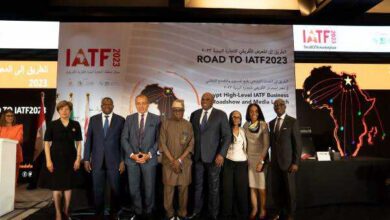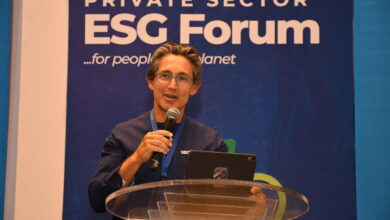FG tampering with CVFF funds, ship owners allege, demand forensic audit

By ADAKU WALTER
Indigenous ship owners in the country have accused the Federal Government of tampering with proceeds of the Cabotage Vessel Financing Funding (CVFF) and demanded a forensic audit to determine its actual value before setting guidelines for its disbursement.
They made the accusation at the weekend in Lagos during the 2022 stakeholders’ forum organised by the Maritime Academy of Nigeria, Oron (AMANO) alumni with the theme: The State Of The Nigerian Maritime Domain In 2022 And Beyond.
The CVFF, a two per cent contribution by indigenous ship owners from every contract they executive, was introduced to develop local shipping capacity. But till date, over 18 years ago, the over $250 million which has accrued into the fund, has yet to be disbursed to any ship owner.
Chairman of Starzs Investments Company Limited, Greg Ogbeifun, said since the establishment of the Cabotage Act the fund has not been disbursed, even as operators had continued to contribute two per cent of their contract value to the fund.
“We need to carry out a forensic audit to determine how much has accrued to that fund. We started contributing to that fund since it was established and as we speak, two per cent of our contract value is still being deducted,” he said.
Ogbeifun explained that until a new guideline for the disbursement of the fund was developed by the Minister of Transportation, Chibuike Rotimi Amaechi, anyone interfering with the fund was committing a crime.
“We are stuck at the moment and anybody interfering with the fund is breaking the law. We need to review the requirement of the Cabotage Act so that the fund can be unlocked.
“The Act is very clear and unless it is modified to reflect otherwise, it is mandatory that the Minister must come out with the guidelines taking cognizance of the fact that the funds are no longer in commercial banks but now in government coffers.
Read Also: Price of refilling cooking gas cylinders rises by 84%
“So, in the existing guidelines, the PILs have a role to play in the funding. And until the Central Bank of Nigeria (CBN) can play that role or there is a completely new arrangement, anybody touching that fund is committing a crime,” he said.
In his presentation titled: How To Be Among Respected Maritime Nations, Ogbeifun said while the nation’s maritime industry has huge untapped potential, absence of cooperation and synergy among stakeholders that would implement recommendations to restructure and position the industry as well as inadequate platforms are major factors militating against its development.
He recalled that recent efforts to establish a national fleet failed due to the nation’s unfavorable trade policies and tax laws and not because indigenous ship owners could not raise the 60 percent stake allotted to them as claimed by the Minister.
“Once our tax laws are right and tonnage taxes are reviewed, the government does not even need to invest in the buying of ships. The private sector can now key in knowing that they will become competitive with their foreign partners,” he said.
In his goodwill message, Director General of the Nigerian Maritime Administration and Safety Agency (NIMASA), Dr. Bashir Jamoh, said the disbursement of the fund has been politicised, but assured that the fund would be disbursed.
He explained that the issue of audit is a statutory requirement that NIMASA account must be audited annually and the audit includes the CVFF account.
Also speaking, President of AMANO, Emmanuel Maiguwa, pointed out that with the advancement of ideas and technologies disrupting leading industries globally, it had become imperative that as leaders and players in the maritime industry, stakeholders must optimise all available resources and think outside the box to ensure that the Nigerian maritime industry is abreast and at par with global standards and best practices.
“The stakeholder’s forum was initiated to drive important conversations among all relevant parties to tackle challenges in sectors that could impact the safety, security and economy of the maritime industry and how it affects the country and beyond.
“The theme of the forum seeks to promote synergy between members, agencies and stakeholders towards offering sustainable solutions to the challenges of the maritime domain, as well as encourage intellectual and emotional ties between the academia and maritime industry practitioners,” he said.
Click on The Trumpet to follow us on our facebook page for more:




